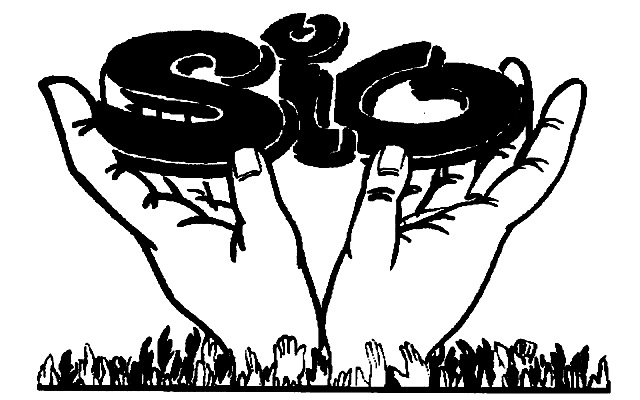A Response to Adil Hossain’s “Misadventures of SIO harming Indian Muslims”
Fawaz Shaheen for BeyondHeadlines
Before delving further into the rightness or otherwise of this perception, let us first clarify that politics is at its roots a value-driven activity, and while perceptions are important, how is it justified to abandon one’s values just because ‘popular perception’ seems to be against it? The championing of a cause is based on the values motivating it, and the argument that one must pander to popular perception just because it is popular seems a tad – excuse me for saying so – fascist in its construction.
Narendra Modi is considered a criminal based on, as Adil Hossain pointed out, “…Media images and text appeared in post conflict scenario…” as well as countless number of probes, reports and investigations that have stood the test of objective analysis over a large period of time. To say that Narendra Modi is considered to be complicit in the Gujarat riots merely because of a media-created perception is an argument that the BJP is trying very hard to sell these days (with quite admirable success, one must say) and it belittles the work of many activists and civil rights champions who have worked hard over the years to bring his involvement in the Gujarat pogrom to light.
Applying the same test of objective analysis to the allegations surrounding Jamaat-e-Islami today, it seems hard to find any justification for the prevailing perception of their guilt being indisputable. The sustained media narrative against Jamaat glides over important questions and almost without exception fails to give any kind of space to the accused, which is something Narendra Modi can certainly not complain of.
That the credibility of the War Crimes tribunal which convicted Molla is compromised is hardly a matter of debate anymore. Conviction by illegal trial is in itself sufficient cause for the SIO to protest against the hanging of any individual.
The allegations of anti-minority violence against the Jamaat are mainly based on the reports of two leading Bangladeshi Newspapers, ‘The Daily Star’ and ‘Prothom-Alo’. Those making these allegations are ignoring the voice of local minority groups like the Bangladesh Hindu Buddhist Christian Welfare Front, which has claimed that the anti-minority violence is nothing but a government ploy to detract public focus from the rigged elections, or the Bangladesh Minority Lawyers Association, which has firmly placed the blame for riots on Government supporters, or Advocate Subrata Chowdhary of the Hindu Buddhist Unity Council, who has also accused the Awami League of post-election anti-minority violence. They also seem unaware of the violence by defeated Awami League Candidates in the few constituencies where Hindu candidates emerged victorious.
The media narrative has also failed to record the stand of the accused Jamaat, which has called for a UN probe into these matters and even come forward with names and evidence of Awami League activists involved in the riots, something which the Government, despite its broad-based allegations, has so far failed to do. It has also failed to report the ongoing extra-judicial killings of opposition activists, such as the murder of three Jamaat-Shibir members just last Sunday in a police ‘encounter’.
If the SIO is indeed guilty of hypocrisy, and politics is fundamentally a game of perceptions, then India’s left-liberal media certainly has a lot to answer for its selective-conscience.
Why is it that, while rushing to embrace the RSS narrative of Jamaat-killing-Hindus, the guardians of India’s secular democratic values have failed to question the credibility of Bangladesh’s rigged, single party elections even when independent watchdogs all over the are doing so?
What perception does it create when, while the entire world is calling for a re-election in Bangladesh, the world’s largest democracy continues to insist upon the legitimacy of an illegally elected government? Why have India’s left-liberal voices failed to criticise the government’s support for an undemocratic regime?
For those bothering to actually listen, there are enough voices on the ground to at least merit a credible investigation. What perception does it create that Indian media is obediently towing the government line of support for Sheikh Haseena, regardless of its consequences for democracy and civil rights?
In the larger picture, it seems that future historians will only be left with the perception that at a time when the Indian government was occupied in a hegemonic power play to ensure its favourite candidate stayed at the helm of affairs in Bangladesh, even at the cost of democracy and civil liberties, the entire establishment, even alternate media and leftist voices (both communist and non-communist), played along without offering so much as a question.
In the last paragraph, Mr Adil Hossain shows that his real problem is with what he calls SIO’s “pan-Islamism”, and therefore “… SIO should not be allowed to represent the voice of Indian Muslims…”. While the SIO does not claim to speak for anyone but itself, it is the largest organisation of Islamic-oriented youth in India, and as such will always be counted to speak for a substantial number of Muslims in India.
The politics of perceptions is neither rigid nor well-defined, and can certainly not be touted as the standard for truth. Merely because someone differs from the popular perception cannot be justification enough to deny its agency. At least, the perception of democracy cannot survive if it is.
(The author is a law student at Aligarh Muslim University (AMU) and an active associate of SIO. It’s not an official reply of Students Islamic Organisation (SIO). Views expressed are personal.)






















